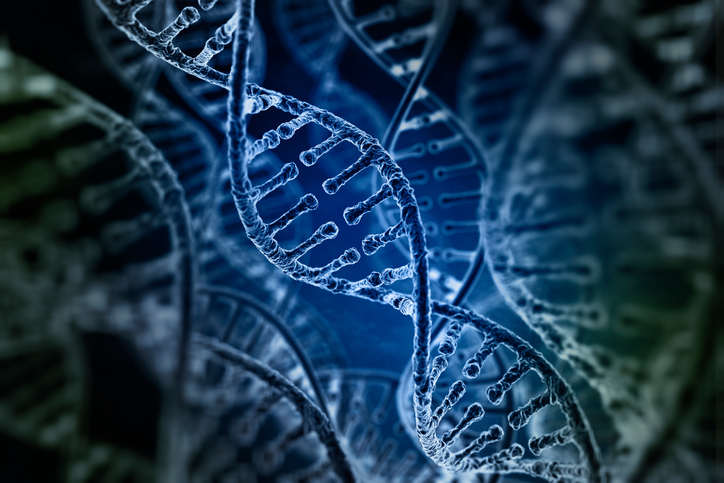
Engineered viruses are the delivery vehicle of choice for many genetic medicines, but they pose several problems. In addition to the risk of dangerous immune responses, these viruses don’t go to all tissue types and they have limitations on the size of genetic cargo that they can carry. Code Biotherapeutics is overcoming those problems by avoiding viral delivery altogether. The startup claims its approach can bring genetic medicines to more diseases and it now has $75 million to move closer to testing its technology in humans.
The Series A round of financing announced Tuesday was led by Northpond Ventures.
Code Bio’s approach to delivering genetic medicines is based on synthetic DNA. To that structure, the company can add targeting molecules—peptides, antibodies, or small molecules. That structure also carries the genetic cargo. Code Bio, which is based in Hatfield, Pennsylvania, just outside of Philadelphia, calls its technology 3DNA.
One of the key problems with engineered viruses is that the body sees them as foreign, leading to an immune response. Because the body produces antibodies against the virus, a patient can’t be redosed with a therapy if necessary. Those limitations have restricted viral-based genetic medicines to rare diseases. Code Bio says that because its technology does not pose the same immune response risks and has a larger genetic payload capacity, it can address a broader range of genetic disorders with redosable therapies. Furthermore, the company claims its technology offers manufacturing advantages. The 3DNA structures can be made in bulk and stored. When a genetic medicine is needed, the 3DNA can be pulled “off the shelf.” All that’s required to make the final product is to attach the targeting molecules and add the genetic payload.
So far, Code Bio has two lead programs, one for the rare disease Duchenne muscular dystrophy and the other for the more prevalent type 1 diabetes. Gene therapies in development for Duchenne use an adeno-associated virus to deliver a functioning version of the gene that codes for the key protein that these patients lack. But the capacity limitations of AAV mean that these gene therapies use a shortened version of the gene that can’t be redosed. Code Bio aims to overcome such limitations facing genetic medicines in development for Duchenne.

A Deep-dive Into Specialty Pharma
A specialty drug is a class of prescription medications used to treat complex, chronic or rare medical conditions. Although this classification was originally intended to define the treatment of rare, also termed “orphan” diseases, affecting fewer than 200,000 people in the US, more recently, specialty drugs have emerged as the cornerstone of treatment for chronic and complex diseases such as cancer, autoimmune conditions, diabetes, hepatitis C, and HIV/AIDS.
For type 1 diabetes, Code Bio is working with the Juvenile Diabetes Research Foundation to explore ways to increase the functional number of beta cells that produce the insulin that these patients lack. The company said the new funding will be used to advance both programs to the preclinical research that could support investigational new drug applications. The cash will also be used to expand the pipeline and platform to additional indications, as well as for manufacturing.
Code Bio isn’t the only company pursuing non-viral delivery approaches for genetic medicines. ReCode Therapeutics is developing therapies based on lipid nanoparticle (LNP) delivery. While LNPs preferentially go to the liver, ReCode’s technology removes the liver as a target, enabling the targeting of other tissue types. The technology also offers greater payload capacity compared to engineered viruses.
Code Bio emerged from stealth last year, backed by a $10 million seed funding. With the latest financing, Diana Bernstein, vice president at Northpond Ventures, will join Code Bio’s board of directors.
“Code Bio’s targeted 3DNA delivery platform is positioned to extend the utility of genetic medicines beyond what’s currently possible with viral gene delivery in support of the development of transformative therapies,” Bernstein said in the funding announcement.
Other investors in Code Bio’s Series A round include Amgen Ventures, Hatteras Venture partners, and UCB Ventures. Earlier investors New Enterprise Associates, 4BIO Capital, CureDuchenne Ventures, the JDRF T1D Fund, UPMC Enterprises, and Takeda Ventures also participated.
Photo: iLexx, Getty Images













